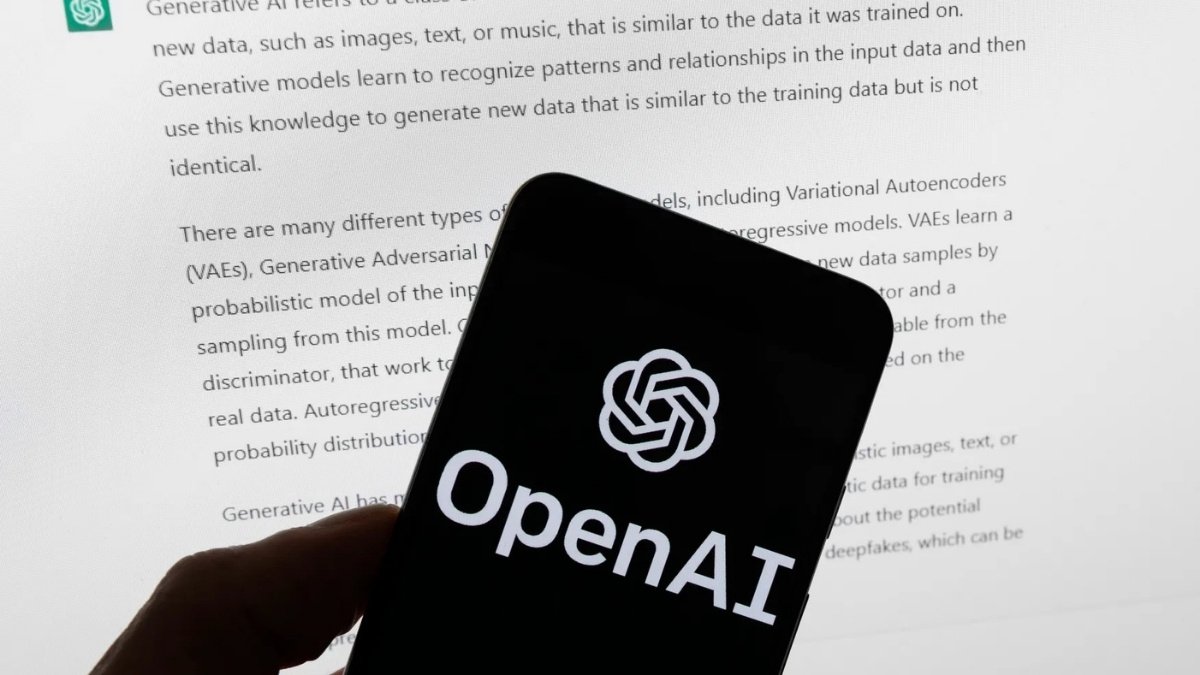My experience with AI so far is that I have to waste more time fine tuning my prompt to get what I want and still end up with some obvious issues that I have to manually fix and the only way I would know about these issues is my prior experience which I will stop gaining if I start depending on AI too much, plus it creates unrealistic expectations from employers on execution time, it’s the worst thing that has happened to the tech industry, I hate my career now and just want to switch to any boring but stable low paying job if I don’t have to worry about going through months for a job hunt
Sounds like we all just wamt to retire as goat farmers. Just like before. The more things change…they say
The link in the article to the MIT report doesn’t directly link to any report. I wouldn’t trust this article until the report is accessible and verifiable.
Imagine what the economy would look like if they spent 30 billion on wages.
This is where the problem of the supply/demand curve comes in. One of the truths of the 1980s Soviet Union’s infamous breadlines wasn’t that people were poor and had no money, or that basic goods (like bread) were too expensive — in a Communist system most people had plenty of money, and the price of goods was fixed by the government to be affordable — the real problem was one of production. There simply weren’t enough goods to go around.
The entire basic premise of inflation is that we as a society produce X amount of goods, but people need X+Y amount of goods. Ideally production increases to meet demand — but when it doesn’t (or can’t fast enough) the other lever is that prices rise so that demand decreases, such that production once again closely approximates demand.
This is why just giving everyone struggling right now more money isn’t really a solution. We could take the assets of the 100 richest people in the world and redistribute it evenly amongst people who are struggling — and all that would happen is that there wouldn’t be enough production to meet the new spending ability, so so prices would go up. Those who control the production would simply get all their money back again, and we’d be back to where we started.
Of course, it’s only profitable to increase production if the cost of basic inputs can be decreased — if you know there is a big untapped market for bread out there and you can undercut the competition, cheaper flour and automation helps quite a bit. But if flour is so expensive that you can’t undercut the established guys, then fighting them for a small slice of the market just doesn’t make sense.
Personally, I’m all for something like UBI — but it’s only really going to work if we as a society also increase production on basic needs (housing, food, clothing, telecommunications, transit, etc.) so they can be and remain at affordable prices. Otherwise just having more money in circulation won’t help anything — if anything it will just be purely inflationary.
There are more empty homes than homeless in the US. I’ve seen literal tons of food and clothing go right to the dump to protect profit margins.
Do you have any sources to back up the claim that we need to make more shit?
This is not true. We have enough production. Wtf are people throwing away half their plates at restaurants? Why does one rich guy live in a mansion? The super rich consume more than people realize. You are wrong on so many levels that I do not know where to start. You sound like a bot billionaire shill.
We have enough production in some areas — but not in others. Some goods are currently overly expensive because the inputs are expensive — mostly because we’re not producing enough. In many cases that’s due to insufficient competition. And there are some significant entrenched interests trying to keep things that way (lower production == lower competition == higher prices).
And FWIW, the US’s current “tariff everything and everybody” approach is going to make this much, much, much worse.
I am certainly not the friend of billionaires. I’m perfectly fine with a wealth tax to fund public works and services. All I’m against is overly simplistic solutions which just exacerbate existing problems.
You sound like a dad after reading the morning press.
We could take the assets of the 100 richest people in the world and redistribute it evenly amongst people who are struggling — and all that would happen is that there wouldn’t be enough production to meet the new spending ability, so so prices would go up. Those who control the production would simply get all their money back again, and we’d be back to where we started.
Then we should do that over and over again.
You are repeating indoctrinated capitalist think patterns. In reality the market most often does not react like that.
The example as given by you is how you basically teach the concept of market balance to middle schoolers. However, it’s a hypotetical lab analogy. It’s over simplified for lay people. Comparable to the famous “ignore air resistance” in physics.
Markets are at times efficient, at other times inefficient. They may even be both concurrently.
First, economists do not believe that the market solves all problems. Indeed, many economists make a living out of analyzing “market failures” such as pollution in which laissez faire policy leads not to social efficiency, but to inefficiency.
Like our colleagues in the other social and natural sciences, academic economists focus their greatest energies on communicating to their peers within their own discipline. Greater effort can certainly be given by economists to improving communication across disciplinary boundaries
In the real world, it is not possible for markets to be perfect due to inefficient producers, externalities, environmental concerns, and lack of public goods.
If we’re just talking about the USA, then the ~200 million working people would get $150 each.
We could always just confiscate all fortunes over 900 million dollars.
The 5 richest billionaires have a combined $1.154 trillion, which divided by $340 million gives us $3,394 per American citizen. That’s literally just the top 5. According to Forbes there were 813 billionaires in 2024. Sounds pretty damned substantial to me. We’re talking life-altering amounts of money for every American without even glancing in the direction of mere hundred-millionaires. And all the billionaires could still be absurdly wealthy.
Does the 30 billion also account for allocated resources (such as the incredibly demanding amount of electricity required to run a decent AI for millions if not billions of future doctors and engineers to use to pass exams)?
Does it account for the future losses of creativity & individuality in this cesspool of laziness & greed?
Yeah. No shit. wtf did they think was gonna generate returns? They wanna run ads in the middle if responses?
I’m not sure they were expecting returns. Just afraid that if other companies had AI, they might lose business to them. Except of course a lot of people (or at least I) avoid anything with AI and mistrust its results.
30-40 billion USD in total worldwide over three years seems very little compared to the massive expenditures by the AI companies to build the things?
Does this mean they’ll invest the money in paying workers? No… they’re just have to double down.
MANY companies aren’t profitable for several years. The one I work at wasn’t for 2 decades. It’s a long game.
For me that aren’t good with scripting AI can actually fill a educational role. Or at least point me in correct direction so I can complete the rest myself.
hello, welcome to taco bell, i am your new ai order specialist. would you like to try a combo of the new dorito blast mtw dew crunchwrap?
spoken at a rate of 5 words a minute to every single person in the drive thru. the old people have no idea how to order with a computer using key words.
Thank god they have their metaverse investments to fall back on. And their NFTs. And their crypto. What do you mean the tech industry has been nothing but scams for a decade?
Tech CEOs really should be replaced with AI, since they all behave like the seagulls from Finding Nemo and just follow the trends set out by whatever bs Elon starts
If I pinged my CEO over Slack and got back “You’re absolutely right! Let me try that again” I might actually die from crying with joy.
If only there was some group of people with detailed knowledge of the company, who would be informed enough to steer its direction wisely. /s
5% is Nvidia.
There are not enough 💯 emoji in the world for this post.
💯
But it’s okay, because MY company is AHEAD OF THE CURVE on those 95% losses
How bad to you think this collapse gonna be? We gonna see a big name collapse into dust or we gonna see something akin to the Great Depression?
The AI bubble is going to be like the dot com bubble I think, but with the world being so heavily financialized it might spiral into something like 2008 or worse…
It won’t be like the dot com bubble. The AI bubble is far more corporate investment with far fewer entities having money thrown at them.
Yeah, most individuals don’t have money to invest in techbros’ latest boondoggle.
Which means we’ll be paying for their bailouts instead.
That’s true yeah, there is a lot less retail investment in those companies.
What is similar to the dot com bubble though is many “smaller” companies (i.e. not Google or Meta) are buying into AI as an investment into infrastructure for their company, just like was happening with useless websites during the dot com bubble.
We’ll see the beginning of a crash in about a year and the crash probably won’t end for 7-10 years.
We’re looking at a full scale shift in the way large scale orgs are running their businesses; and it’s a shift a lot of them will need to pivot from once they realize it’s not working.

Imagine how much more they could’ve just paid employees.
Nah. Profits are growing, but not as fast as they used to. Need more layoffs and cut salaries. That’ll make things really efficient.
Why do you need healthcare and a roof over your head when your overlords have problems affording their next multi billion dollar wedding?
I really understand this is a reality, especially in the US, and that this is really happening, but is there really no one, even around the world, who is taking advantage of laid-off skilled workforce?
Are they really all going to end up as pizza riders or worse, or are there companies making a long-term investment in workforce that could prove useful for different uses in the short AND long term?
I am quite sure that’s what Novo Nordisk is doing with their hire push here in Denmark, as long as the money lasts, but I would be surprised no one is doing it in the US itself.
My theory is the money-people (VCs, hedge-fund mangers, and such) are heavily pushing for offshoring of software engineering teams to places where labor is cheap. Anecdotally, that’s what I’ve seen personally; nearly every company I’ve interviewed with has had a few US developers leading large teams based in India. The big companies in the business domain I have the most experience with are exclusively hiring devs in India and a little bit in Eastern Europe. There’s a huge oversupply of computer science grads in India, so many are so desperate they’re willing to work for almost nothing just to get something on their resume and hopefully get a good job later. I saw one Indian grad online saying he had 2 internship offers, one offering $60 USD/month, and the other $30/month. Heard offshore recruitment services and Global Capability Centers are booming right now.
Someone somewhere is inventing a technology that will save thirty minutes on the production of my wares and when that day comes I will tower above my competitors as I exchange my products for a fraction less than theirs. They will tremble at my more efficient process as they stand unable to compete!
You misspelled “shares they could have bought back”









